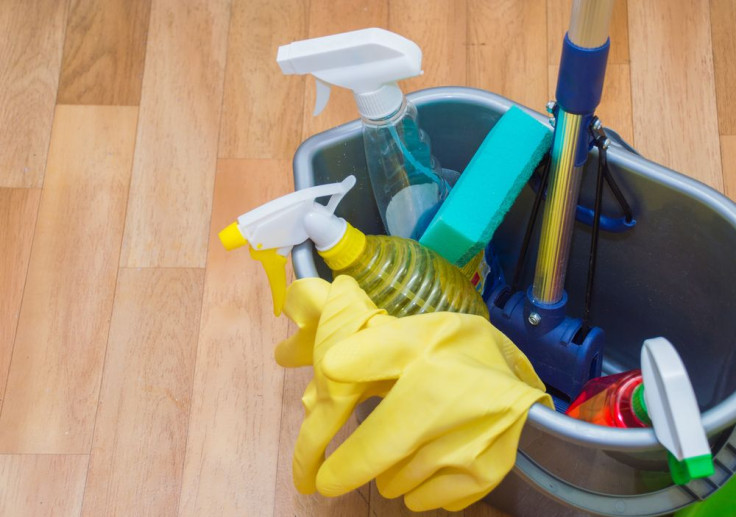Wealthy Men Know They Should Help With Housework, But Don't

More men are helping their partners out around the house, but a new study from the University of Warwick found these men probably have lower incomes — wealthier men are still useless.
Dr. Clare Lyonette, of the Institute of Employment Research, led the study. She interviewed several couples for the project, all of whom had at least one child under the age of 14. And Lyonette found there is “a stark difference in couples’ attitudes toward gender equality depending on how much they are earning.”
Men on lower incomes were happier to fill the dishwasher, whereas wealthier men were more interested in hiring a cleaning service. Despite the increased help of un-wealthy men, women, on the whole, are still doing the most, Lyonette said. This is due in part to the “myth of male incompetence.”
“This is a belief by some women — and our study shows it's still rife — that men are unable to complete housework to an acceptable standard,” Lyonette said in a press release. "Women know their contribution to the household should be fairly reflected in the sharing of housework and are often frustrated by their lack of success in changing the situation. But their frustrations are to some extent mollified by the idea that men are inept at domestic chores."
In fact, one woman Lyonette interviewed accused her partner of doing housework poorly on purpose. Her partner would clean around certain areas, not under, and say things like, “Don’t clean upstairs now because no one goes up there except for us.” It’s this kind of disconnect Lyonette believes is likely to stall gender equality.
We wonder if wealthy men know separate research have shown relationships actually thrive when the work is split evenly. A 2013 study found the mental wellbeing, plus heart-health, of partnered adults over the age of 60 improved when they gardened together. What's more is The Washington Post cited research suggesting couples who split housework have a better sex life. Specifically, couples who shared routine housework had sex more than seven times a month. The Post added sex and housework are huge indicators of a relationship's stability.
But like Lyonette, The Post found only 30 percent of married couples were in these equal, sexy relationships in comparison to 47 percent of cohabiting couples — a sign "our institutions and our policies haven't caught up with our attitudes. This is why we're still stalled."
Source: Lyonette, C. Sharing the load? Partners’ relative earnings and the division of domestic labour. Work, Employment, and Society. 2015.
Published by Medicaldaily.com



























